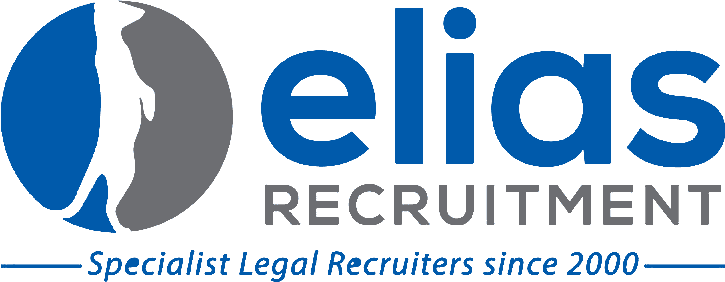Uncertain times- don’t worry, we are in your corner

Sometimes you need to talk to someone about your career. It is dangerous to speak to colleagues at work so an objective outsider with industry experience is a good option. Here is where an experienced consultant can help. Elias Recruitment has over 20 years helping legal professionals in private practice and in-house legal roles. Our award winning team, are a safe pair of hands to advise on everything from salaries and your current role or any future move. We can offer expert advice and insight into which opportunities will best suit your career ambitions. We have consultants in Sydney, Melbourne, Brisbane and Perth to assist you. So if you want a friendly, objective voice on your team, book a free career chat with one of our team at [email protected].
How to negotiate your legal salary

Much like interviews, successful salary negotiation happens BEFORE any conversation. Being well prepared will make you a lot more successful. 1- Know industry ranges so that you know what is realistic for any given role. Glassdoor, while not legally specific, may have some useful information of actual salaries. 2- Always remember that it is a collaboration – not a fight. 3- Speak with your recruiter about what is realistic. 4- Hold off on discussing money until they’ve made a decision to hire you. Potential employers will always be looking to lock you down to a specific range early, and you will have more leverage when they’ve decided that you are the person they are most interested in. 5- Quantify your value – know the specifics around your billable hours, charge rates, along with major new clients that you might have won, or initiatives that might have saved your firm significant amounts. 6- Scarcity and competition are your friend – make it clear that you are in demand and have some other opportunities. This helps the company bring their best offer to the table. 7- Negotiate outside of just salary – many companies might have some limitations around salary banding, but might be able to help with additional working hour flexibility, training allowances, position title, travel allowances, education allowances, additional annual leave, etc. 8- Work with your recruiter – a good recruiter as an intermediary can really help you succeed here. They’re able to have more difficult conversations tactfully on your behalf. It makes things cleaner having an independent third party but obviously they are keen to get the deal done. 9- Don’t haggle for the sake of it. I have seen too many people miss out on dream jobs for trivial amounts of a few dollars a day, particularly taking out tax and superannuation.
Personal Branding Masterclass for Lawyers

Research potential employers before applying for a job.

Extensively Research the Company. Your biggest advantage is information, and almost everything you need to know about a company can be found online. Here are the questions to answer about the company you’re applying for: • What does the firm/company do? • What is their culture like? • What kind of people do they typically hire? • Do I know anyone who works there? • Do I have any connections there? Use the following resources to get your answers: • The company website • LinkedIn • Google news • Youtube • Google Finance • Glassdoor.com • Twitter.com • Facebook.com • Instagram.com Be armed with as much data as possible. For additional career advice contact Jason Elias on [email protected]
How to position yourself for approaches (headhunting)

A few touches to your mobile phone and your groceries, an Uber or a pizza come to you. So why not a job? Many of the best jobs are never advertised so how do you hear about them? Good employers know that the best lawyers are so busy running their practices that they don’t have time to trawl through job ads. They also like keeping strategic hires out of the public eye so the marketplace doesn’t catch on to what they’re doing and where they’re headed. That’s why, when it comes to bringing in the big guns, they’ll use third party headhunters to track down, sound out and snare the best talent for themselves. Headhunters don’t use a scattergun approach. Once they’ve been briefed, they usually put feelers out via networks, compile a longlist, then research those candidates to see who’s likely to be a good fit. By the time they approach someone, they pretty much know who they are, what they do and what their reputation is like. So, if you want to be in their sights, there are six things you should be doing: 1. Social networks – make LinkedIn work for you Review your LinkedIn profile, make sure it clearly articulates your skills, experience and area of practice. Highlight projects you’ve worked on and the value you contributed (without of course breaching client confidentiality). Headhunters want to have a good understanding that you’ve worked on similar kinds of matters to those their client has briefed them about. Don’t be shy about blowing your own horn. See Getting your social media profiles ready (Above). 2. Be known as an industry expert You’ll never be headhunted if no one has ever heard of you. So, if you’re not already building a profile for yourself, start now.Put yourself forward to present on your areas of expertise wherever possible, especially for industry events or CPD. As an example, check out Bulletpoints for content. Write about important issues and hot topics affecting your work and share these – not just via your firm’s newsletters but directly with contacts by publishing LinkedIn and other social media channels. To ramp things up, join LinkedIn groups of like-minded people such as Australian Legal Community and start contributing to the conversations. Consider publishing in industry journals – or better still, form relationships with journalists to expand opportunities of being quoted in business or mainstream press as an expert in your field. 3. Releasing subtle signalsIf you are considering making a move, it’s a good idea to start putting your feelers out there. You can even change your LinkedIn settings to discreetly show that you are open to new opportunities (not viewable to your employer). Also check that your Inmail settings allow you to notify users that you are open to ‘career opportunities’. 4. Make contacting you easy, not a mystery While gatekeeping receptionists can be great at shielding you from telemarketing calls, they can act as a block for headhunters who want to sound you out. So make yourself easy to contact by including your mobile number and personal email address on your LinkedIn profile. If a headhunter struggles to reach you, they may bypass you and run the opportunity by the next person on their list. And, if a headhunter calls and you can’t speak freely, set a time to chat when you’re out of the office. This also gives you a chance to check out their LinkedIn profile to see whether you want to deal with them. 5. Remain professional, don’t breach etiquette Don’t tell anyone in your firm – and that means anyone – about your plans to move, even once you’ve been approached. If the headhunting process isn’t handled discreetly, you’re likely to jeopardise your current position as well as any new opportunities. If a headhunter alerts you to an opportunity never approach the employer directly. Not only will your overtures be met with blank stares, you’ll be seen as disloyal. They’re using a headhunter for a reason and it may be a confidential search. 6. But don’t be afraid If you are approached by a headhunter, you can benefit from their expertise. It never hurts to know the state of the market and have a trusted source of intelligence, especially around salary review time. Besides, even if the specific opportunity they wanted to talk about isn’t right for you at the time, something may hit their desk in the near future. Finally, if you’ve noticed that they’ve looked at your LinkedIn profile, drop them a line to find out why. Headhunting can be a slow dance of missed calls, profile views and unnoticed messages sitting in your personal email account. So, if you’re open to a move, make sure you stay alert and responsive to any headhunter approach. For additional career advice contact Jason Elias on [email protected]
Get your credentials and qualifications up to date
You need to ensure that you have been keeping up with all your CPD requirements, and also there are many additional courses and qualifications. We’d recommend our sister site, Bulletpoints (www.bulletpoints.com.au) as a marketplace that allows you to find, book and track all of your CPD requirements. Bulletpoints aggregates courses from over 25 different legal industry education providers and you are able to choose from hundreds of live events, videos, online courses or onsite training options to obtain your CPD points. Once you have completed all of the relevant courses and qualifications, be sure to update both your resume and your LinkedIn profile with completed certifications as this can help you stand out. Relevant qualifications that you might include are AICD certifications, might include College of Law Masters (including the new Master of Legal Business), professional industry bodies, etc. You may also want to build your profile by presenting at CPD courses either through Bulletpoints or a range of providers such as Law Societies, College of Law, and universities who are often looking for speakers. For additional career advice contact Jason Elias on [email protected]
Don’t burn bridges when leaving your job
So you’ve decided it’s time to move on and have secured a great new offer. Here are a few handy tips to ensure you leave your job on good terms. Stay engaged Don’t check out too early. As long as you are drawing a salary you owe it to your firm and your clients to do your best until you walk out the door. Organise a plan to transfer your responsibilities so your partner and colleagues are not left with a mountain of unfinished work. Make sure there are no ‘time bombs’ sitting in your files that will adversely affect your colleagues down the track. Write a resignation letter Think of your resignation letter as a thank you note. It’s an opportunity to express your gratitude to your manager for working at the company and for the help they may have provided. It should also include your last day on the job. Where possible, resign in person to provide closure. Make sure you resign with adequate notice, particularly if your job is unusually complex. If you would like some guidance, here is a template for a resignation letter from Seek. Get your story straight Once you’ve met with your manager, ensure you’re both on the same page regarding the reasons for your departure. It’s vital to keep your approach positive – you want to leave the door open for future employment or at least a good job reference. Confirm with your manager how he or she would like your colleagues to be told. It may be worth suggesting that you tell colleagues individually and write a short email for your manager to distribute. Return any property Make sure you don’t leave with any keys, equipment or furniture (I know you loved that office chair). Leave with a good conscience and make sure to pass on your contact details to colleagues. If there is an alumni organisation make sure you sign up and if there is an exit interview- try and provide positive feedback and constructive criticisms. Try and refrain from ‘going postal’ irrespective of the reasons you are leaving. Remember you are likely to bump into former colleagues at other firms, in court or they may even be your next client. It is a small industry and people have long memories. Try and move on without burning bridges. Looking for your next move? Browse our current jobs via our website, or get in touch via [email protected] or (02) 9555 5711.
How to future-proof your legal career in the age of Robots
New Law, disruption, legaltech – these buzzwords herald a shift in how the legal profession sees itself, innovations in technology drive down costs and clients demand more for less. There’s good news however, the doom and gloom around robots coming for the jobs of lawyers is largely unfounded. A recent survey by the Law Society of England & Wales suggested that AI’s impact to the number of legal jobs is minimal – less than 1% – with legal staffing having already peaked in 2009. Artificial Lawyer has predicted further growth in demand for legal services, particularly among larger commercial enterprises, with AI set to serve the often underserviced consumer legal market. Do robots dream of electric lawyers? With the market for legal services set to grow, we can rest assured robots are not coming for our jobs. However, major shifts in technology will demand a vastly different kind of lawyer – equipped with a broader, more human-centric skillset. As technology increasingly assumes the dull, repetitive aspects of legal work, the lawyer of the future needs to do what robots can’t – be more human. What are the skills of the future lawyer? Gone are the days of lawyers memorising hundred page judgements or perfecting total recall of legislation. Just as many law schools have done away with closed book exams, mastery of core legal knowledge sits as a skill alongside an array of more business-oriented, client-focussed skills. Technology allows lawyers to swiftly search and analyse law; its next iteration will allow simple legal problems to be resolved – with services like Allira and Get Free Legal Advice (NZ) allowing for a functionality akin to ‘Siri for law.’ So what skills will future lawyers need to possess to remain relevant? Emotional intelligence/ empathy Law has always been about more than the technical work of applying law to a client’s matter. Understanding what a client wants and requires, and acting effectively in the best interests of a client necessitates a nuanced view of human motivations. This is particularly true in emotionally-charged areas of practice such as family law, but mastery of cultural mores is equally important in a commercial context so lawyers can deliver services clients find valuable. Business acumen to better advice commercial clients Repositioning the lawyer’s role as more of a consigliere with an intimate understanding of the client’s business goals, politics and challenges is essential to ensuring ongoing legal work is seen as relevant and valuable. Lawyers acting as trusted advisors, as opposed to ‘firefighter’ lawyers used only in case of legal emergencies, are far more valuable to clients – intimate knowledge of a client’s business allows them to proactively address potential legal risks long before they become costly and complex. Networking and business development Technology is now automating much of the mundane legal work long the bane of lawyers, especially junior lawyers. As a result, the future lawyer will be encouraged to skill up in business development much earlier in their careers. Relationships with clients, current and new, will emerge as the future lawyer’s major asset. Tech-savvy early adopters Lawyers are often seen as luddites. The profession is a latecomer to digital disruption; some lawyers still insist on printing all correspondence. In terms of technology, however, resistance is increasingly futile – the future lawyer is a tech-savvy early adopter, open-minded and eager to embrace ways technology can make their work more efficient. Firms who fail to consistently update technology to optimise workflow risk being left behind – and priced out of the market by more efficient competitors. Interested in finding out more about recruiting for the future of law? Follow us on Facebook or LinkedIn, or explore technology CPD courses on Bulletpoints.
Recruiting lawyers ready for digital disruption
Digital disruption, AI (artificial intelligence), legaltech – all these phrases have become synonymous with the change affecting traditional private practice. Lawyers are facing competition from unexpected quarters – the ‘Big 4’ professional services firms expanding their legal teams, while the ranks of in-house counsel also grow. In addition, startups and disruptive technology are turning their attention to the legal profession, hoping to address simple queries via AI-powered chatbots, streamline and automate due diligence workflow or predict judgements or the compliance requirements of new regulations. In the midst of this slew of technological activity, lawyers are increasingly asking how best they may adapt to remain relevant as the role of the lawyer evolves. To future-proof your legal career, Elias Recruitment has compiled a few useful tips. Gain exposure to legaltech Wherever possible, gain an understanding of what is happening in terms of tech disruption. For example, Gilbert + Tobin and the Centre for Legal Innovation recently hosted the AI in Legal Practice Summit, which featured Heads of Innovation from major firms and legal entrepreneurs developing apps and tech solutions for the profession. In attendance were not merely technology lawyers but also in-house counsel from universities and industry bodies, as well as lawyers in private practice. Conferences, roundtables and events like this offer lawyers an opportunity to understand key trends emerging in the profession, and become champions of change within their organisations. To code or not to code? It’s a matter of a debate as to whether lawyers should learn to code. Some firms have run workshops on introductory coding for their lawyers, simply to allow lawyers to better understand their clients’ business. While there is no suggestion that lawyers should become proficient in coding and development, it is clear that lawyers who do possess a working knowledge of new technology are more likely to recognise and adapt to its applications. Get involved in internal tech projects Firms are increasingly adopting new technology to innovate and improve efficiencies, especially for labour-intensive legal tasks like due diligence and discovery. Get involved in pilot projects designed to test drive new technology, and be among the first tech-literate lawyers in the firm and the profession. So what does this mean for me? Adapting to a changing profession does not strictly mean lawyers need to become expert technicians, developers or app inventors. Rather, future-ready lawyers will remain relevant by improving their exposure and understanding to emerging technology and its applications to what they do. Interested in learning more? Visit Bulletpoints.com.au to browse the range of legal courses available.
State of the Legal Market: Recruitment Update
Elias Recruitment brings you the latest state of play in the Australian legal market, drawing on the Urbis National Profile of Solicitors Report – Urbis (2016) and a review of the State of the Legal Market by Melbourne Law School and Thompson Reuters Peer Monitor (2016). The profession is growing, aging and diversifying The Australian legal profession is experiencing significant growth. Over the last five years there has been a 24% increase in the number of practicing solicitors. This reflects significant growth in the profession. Indeed, for the first time, gender parity has been achieved, with an equal number of men and women in the profession. Women now make up nearly 25% of all partners in all law firms and a third of partners appointed in the six months to 2 July 2016. However, this diversity is not enjoyed across the board. Australian lawyers with Asian heritage have encountered a ‘Bamboo Ceiling’, with six of Australia’s large law firms having no partners with Asian backgrounds, and only 0.8% of the Australian judiciary having an Asian heritage. Much like Australia’s overall workforce, the profession is also becoming older, with one in 12 solicitors aged 65 years or older. Employment Sector Legal employment sectors are also shifting. Whilst the majority of lawyers continue to work in private practice, there has been a significant increase in the number of solicitors working in the corporate sector and government. Between 2011 and 2016 there has been a 59% increase in this sector. Revenue and demand declining, while competition and disruption is on the rise The legal market is in a state of considerable flux. Revenue and demand for traditional legal services is declining – with total legal spend going to traditional law firms contracting. The big winner are multidisciplinary practices, digital solutions and NewLaw models which are expected to seize 40% of total legal spend by 2021. With the pace of change increasing, progressive law firms are adapting quickly to outperform their competitors. It is imperative that lawyers and law firms looking to survive and thrive in this new environment understand the key elements disrupting traditional legal services – NewLaw and related technology, Multi-Disciplinary Practices, and Boutique, Specialist and Focus Firms. What are the Macro Trends? Lateral partner movements – acquiring proven rainmakers from competing firms is the next best alternative to drive revenue growth – but these come with cultural risks! Growth of digital – the App takes hold of law firms. Supply of legal graduates – but don’t believe the media! Whilst we are told that there are now 41 law schools in Australia producing over 15,000 graduates per annum the figures collected in 2015 by the Counsel of Australian Law Deans reported that just 7,583 law students graduated in 2015. Investment in sales and pricing capability – many firms are investing heavily in upskilling their partners and senior staff in selling and pricing skills. Growth in the mobile lawyer. In conclusion, the present state of the legal market is one of considerable change and opportunity. Firms which adapt to new business models and lawyers who embrace an understanding of new technology and adopt a broader advisory role will be best placed to benefit. Those who don’t risk falling behind their competition. If you’re looking for more details about the market, or interested in exploring your next career move, get in contact with Elias Recruitment on (02) 9555 5711.

